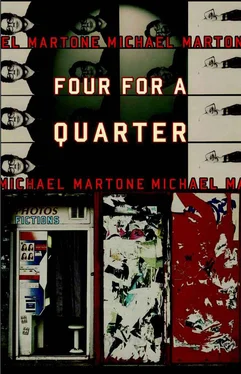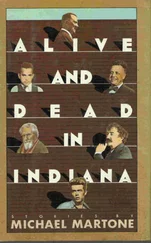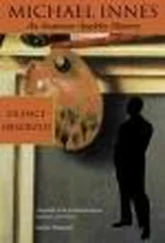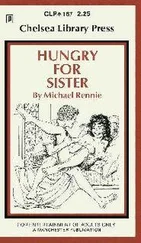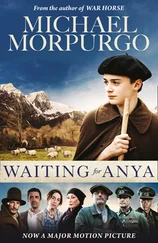Outside in the dark parking lot, the air is cold and empty. father revs up the car and goes on and on about the way they turned into the skid, coaxes the car into gear and slips into the nearest street. As we slow for the first light, a pickup with a trailer coasts by. It enters the intersection as the light turns red, hits the bump at the crest of the cross street, and gives a little flip, like a fluke, as it eases down the grade on the far side and is gone in the night. Once more, because we are not moving, things begin to thicken, and the car closes in. Everything that usually escapes invisibly draws together in steam and smoke, finally heaves into a body, takes another breath, and disappears.
POWER
In the trunk of my father's car there was a Polaroid camera with packets of black-and-white film, striped with bands of gray to distinguish them from color packages. There was chalk in boxes marked like crayon boxes but pale and faded. The chalk dust powdered everything, messed in with the grease of the folded tar and feathered jacks. There were tape measures as big as plates, with foldaway handles, purple snap lines in tear-shaped canisters, rolls of masking tape, black tarry electrician's tape on spools, and white medical tape in unopened tubes. On the first-aid kit was a green cross, and Father used an identical but empty kit for his toolbox, which he also kept in the trunk with jumper cables and two spare tires. A bright-red cartridge fire extinguisher for A, B, and C fires, and flares in red paper, rolled orange warning flags and reflectors. And a twenty-five pound bag of lime. “For the weight,“ he said, “in winter.“
Once, when I was little, we went to a Hall's drive-in, and I used the ledge above the backseat as a table. I spilled my drink, and it drained into the trunk through the rear radio speaker. The speaker shorted; the voice gargled out beneath the paper napkins and foil I was using to blot up the mess. Father was already outside, the trunk lid up and the car rocking up and down gently as he slid the things around with a hiss that was transmitted by the metal of the car. I watched him through the crack left between the body and the open lid. He wiped up the drink as it dripped down and mixed with the chalk dust, smearing the floor. He checked his equipment and then rearranged it. Satisfied, he slammed the trunk lid back down, and it caught on the first time for once and did not spring back up again as it usually did. He even hesitated, expecting it to pop up again. He tapped the trunk once and looked up at me in the rear window, surprised by his own strength. The car still rocked gently up and down. The pigeons circled and settled back to the ground.
Father worked as the director of safety for the phone company and used the camera and the tape measures to investigate traffic accidents involving the company's trucks. He spent part of every week taking pictures of wrecks, visiting accident scenes, and reconstructing what had happened. At night on the dinner table, he would unroll his schematic drawings of street grids. Colored rectangles stood for cars and trucks. Sometimes he would use tokens from board games. He penciled in vectors and numbers, all done on pale-blue veined graph paper. “I know that corner,“ I would say. He frowned as I put a glass of milk down on a parking lot. I told him, as I chewed my sandwich, of this great crash on Spring Street or how the coral color of Jim Musbaum's Chevy at Baerfield Raceway matched the color of that car there. I pointed and smudged the picture. Father frowned again, answered that this man overdrove his headlights. Staring off, he recalled conversion tables, following distances, and reaction time. This man couldn't see and forgot about a blind spot. “He didn't honk his horn at the alley opening.“ Those types of things. “Don't spill,“ he warned.
The rest of his job concerned prevention and education. He distributed drivers' education films that always culminated in a fatality, gave tests, put warnings on windows of trucks. He modified mirrors to magnify, came up with catchy slogans such as “Look alive in '75.“ He also kept a black briefcase in the trunk of his car, up by the seat. Every now and then he would simulate accidents to test first-aid skills and response times of police and fire units. He used the briefcase then.
I went along one time and watched him. He had arranged for a smashed-up car to be left in a certain ditch by our house. After putting on special blood-smeared and torn clothes that he kept in his kit, he added splashes of fake blood for fresh wounds and lacerations. He put on a medical-warning bracelet that said he was allergic to sulfa drugs. To see if they would check. He then threaded a rubber tube up his sleeve and taped it to his arm. At the other end of the tube was a rubber bulb like a perfume atomizer. He held the bulb close to his chest and with his free hand pumped more blood from a plastic bag he wore suspended from his neck. The blood went through the tube and out the other end, where it spurted like a severed artery at his wrist. In his kit, he had plastic casts he could strap on a leg or arm which approximated simple, compound, or complex fractures. He had ACE bandages that had been treated to look like burns, first to third degree.
He wedged himself through the broken windshield of the car, careful not to cut himself on the exposed sheet metal, and tucked his legs under the collapsed dash. Appearing to be pinned, he affected the shallow breathing for shock. His hand out the window, he tried a test beat or two from his wound and it squirted, a trick plastic flower on a lapel.
“How do I look?“ he asked.
“Pretty bad,“ I answered truthfully.
“Good, good. Go call those numbers.“
I left him there and went to a phone booth to call the police and the company's own emergency squad. By the time I returned, I could hear the sirens coming up the bypass. I stood a little way off and looked at my father slouched and unconscious. A red trickle bled down the car door. The shadow his hair cast darkened his forehead. A rear tire had sprung a leak, and the car was settling slowly. His finger twitched.
Passing cars slowed down. Some stopped, pulled off to the side. Passengers got out and ran up to the car. There were sirens now. Someone was directing traffic. The police and the ambulance pulled up. I went closer and saw some police clearing the area, explaining to those who tried to help. The police thanked them, but there was nothing anyone could do. The emergency crews cut away the door with a gasoline-powered tool that shook the car and sounded like a chain saw. My father's head rolled back and forth in the seat. Someone bent over and yelled in his ear. Someone else held the bleeding wrist. On the other side of the car, they broke out the window, trying to free him that way. There were more sirens now, summoned by passing motorists, and a television crew that must have been in the area, listening to the police band. Father was on the ground, and they could not stop the bleeding. They were bringing blankets. A man's hand was streaked red between the fingers. There was a scratch on my father's earlobe just flushed with blood. A piece of glass must have caught him when they broke the window. I could see him stretched out on the ground through the legs of people standing around. A wrecker pulled up. Its brakes coming on and a radio playing. Another man stood up from where he had been crouching over my father. There was no more blood. Someone pronounced him dead and laughed shortly, pulling back the blankets and wiping his hands on my father's shirt.
EXHAUST
When we passed the sign near Penalton which warns against picking up hitchhikers because the penitentiary is so close, the motor home slowed and pulled over. The Erhmans led everyone out the two doors, and we lined up along the drainage ditch and faced in the direction of the prison. The prison water tower was silhouetted now and then by sweeping searchlights. Low to the ground and this far away, not much else could be seen. The men started to shout.
Читать дальше
